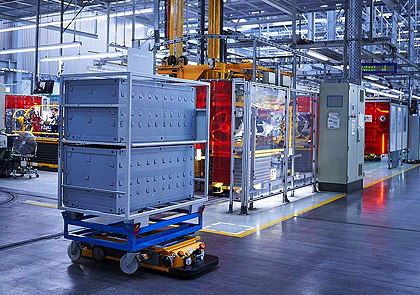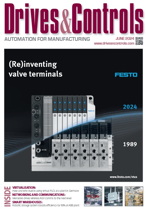- Home » News » World News
Microsoft and BMW want to open up manufacturing tech

Microsoft and the BMW Group have launched an initiative aimed at speeding up innovation in the manufacturing sector and making it more cost-effective. The Open Manufacturing Platform (OMP) is designed to break down barriers caused by proprietary systems, and to create an open technology framework backed by a cross-industry community.
Microsoft and BMW Group are hoping to recruit other manufacturers and suppliers, including companies from outside the automotive industry. By the end of 2019, they want to create a broader community of up to six partners and to roll out at least 15 use cases in selected production environments.
The two companies argue that the proprietary systems being used in factories today are creating data silos and slowing productivity, hindering production and profitability. They hope that their initiative to lead to smart factory systems that can be shared by OMP participants across a variety of manufacturing sectors. The aim is to accelerate industrial IoT developments, shorten time-to-value and drive production efficiencies, while addressing common industrial challenges.
The OMP will deliver a reference architecture based on Microsoft’s Azure industrial IoT cloud platform, with open source components that use open industrial standards and an open data model. As well as facilitating collaboration, the aim is to unlock and standardise data models that enable analytics and machine learning – data that has traditionally been managed in proprietary systems. Using industrial case studies and sample code, community members and partners will be able to develop their own services and solutions, while maintaining control over their data.
“Microsoft is joining forces with the BMW Group to transform digital production efficiency across the industry,” says Scott Guthrie, executive vice-president of Microsoft’s Cloud and AI Group. “Our commitment to building an open community will create new opportunities for collaboration across the entire manufacturing value chain.”
BMW plans to contribute use cases to the OMP community based on its experience with more than 3,000 machines, robots and autonomous transport systems that are connected to its IoT platform, which is built on the Azure cloud, IoT and AI capabilities
For example, at its plant in Regensburg, Germany, BMW is using the IoT platform for a second-generation autonomous transport system. The centrally coordinated system has enabled the car-maker to simplify its logistics processes and improve their efficiency.
In the future, this and other use cases – covering areas such as digital feedback loops, digital supply chain management and predictive maintenance – will be made available and developed further within the OMP community. Regensburg is one of 30 production and assembly sites that BMW operates worldwide.

“Mastering the complex task of producing individualised premium products requires innovative IT and software solutions,” says BMW board member, Oliver Zipse. “The interconnection of production sites and systems as well as the secure integration of partners and suppliers are particularly important. We have been relying on the cloud since 2016 and are consistently developing new approaches.
“With the Open Manufacturing Platform as the next step,” he adds, “we want to make our solutions available to other companies and jointly leverage potential in order to secure our strong position in the market in the long term.”
The OMP is the next evolution a long-standing technology partnership between BMW and Microsoft. Through the OMP, community members will have opportunities to unlock the potential of their data, allowing them to build and integrate industrial systems faster and more securely and, in turn, to benefit from contributing to and learning from other organisations.
The OMP will address common industrial challenges such as machine connections and systems integration. It will facilitate the re-use of software among OEMs, suppliers and other partners, reducing implementation costs. For example, an ROS-based robotics standard for autonomous transport systems for production and logistics will be contributed to the OMP for everyone to use. The OMP will be compatible with the existing Industry 4.0 reference architecture, using the OPC UA interoperability standard.
“This is very good news for the manufacturing industry,” says OPC Foundation president and CEO, Stefan Hoppe. “The use of open international industry standards such as OPC UA in the OMP community enables manufacturers, machine-builders and suppliers to integrate their existing equipment and systems efficiently and securely. For a long time, companies have promoted proprietary, closed ecosystems — the OMP commitment to open development will shape tomorrow’s manufacturing.”





